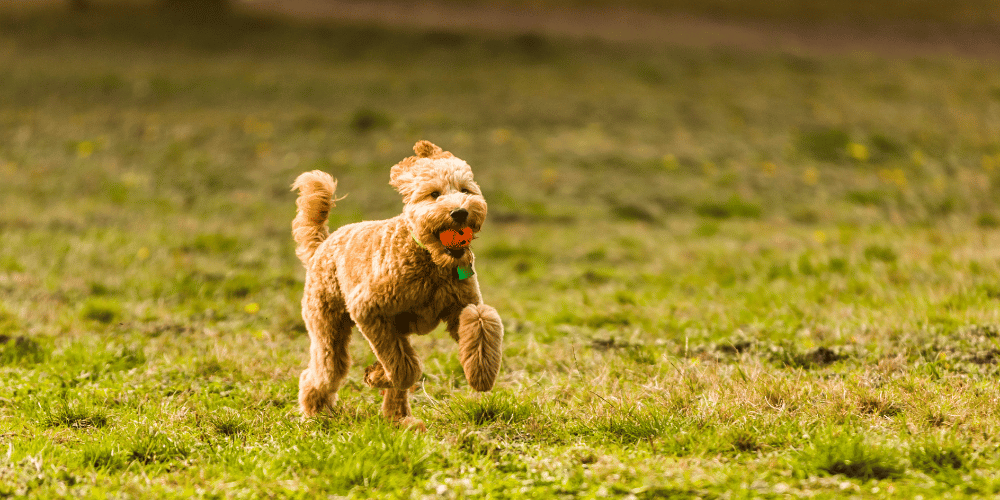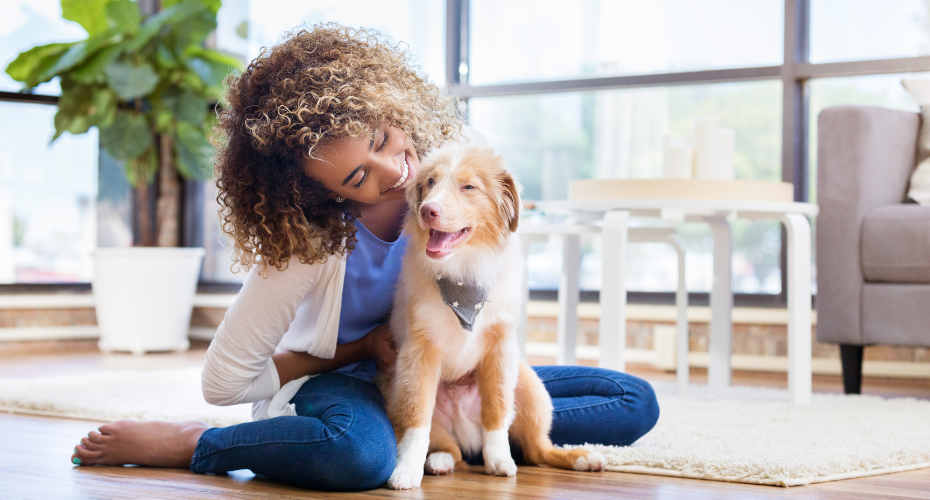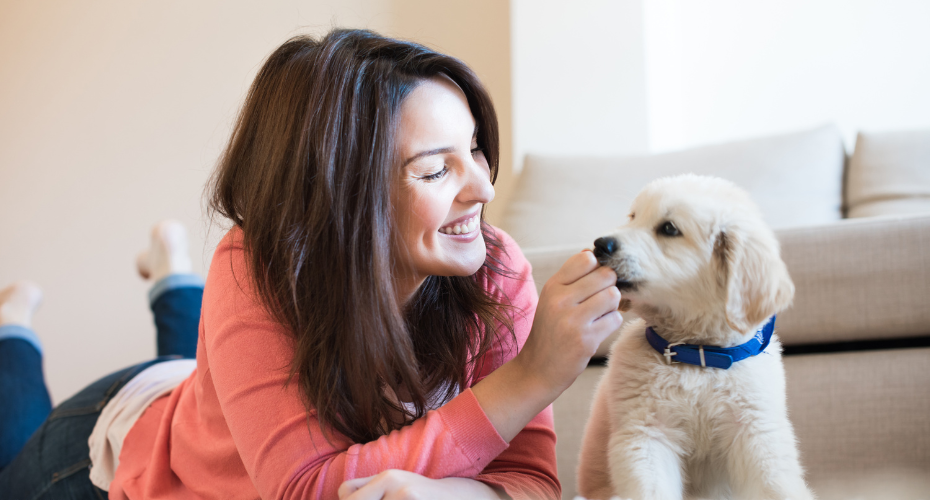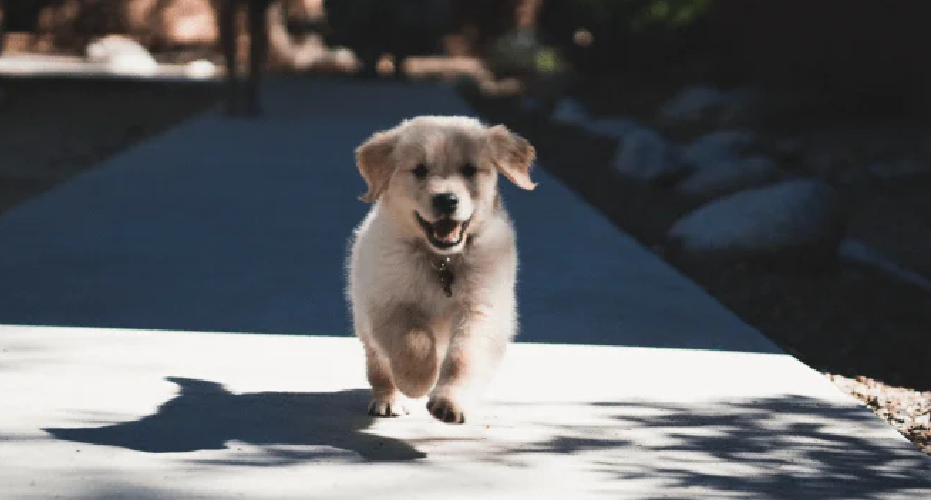
Known for their wiggly, cuddly nature, puppies are loved by all. They love everyone, don't they? Wrong. Many puppies are friendly to everyone they meet, but some may be cautious of strangers and growl at them. But what does this growling mean? Could it be a sign of aggression or could it be something else your puppy is trying to tell you? A puppy growling at strangers is usually a sign that your puppy thinks that something is wrong, and the most likely explanation is that your puppy is fearful of these people that they don't yet know.
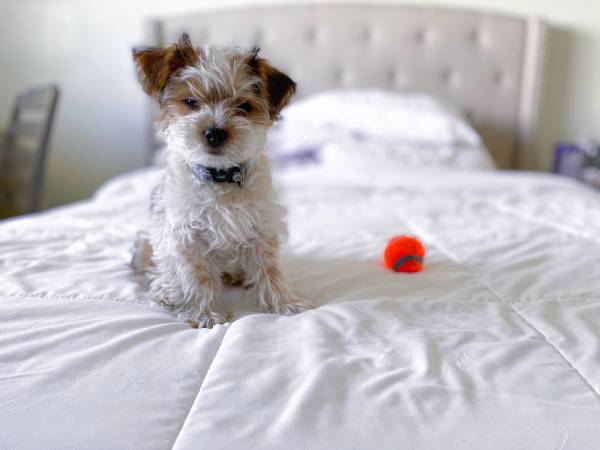
Why Do Dogs Growl?
Growling dogs are usually perceived as aggressive dogs. This is generally true, since it often precedes a bite. Growing is still a means of communicating. Dogs growl when they are afraid, uneasy or unhappy about a certain situation. They may growl at another dog if it gets too close. This is your dog’s way of saying "back up, you're in my personal space here". Other dogs will back off if they perceive this message correctly.
Growling is a warning sign. It's a signal that you've got time to make adjustments before things escalate. When your puppy growls, they are unhappy about something and are telling you that they need something changed. You have the responsibility to show your dog that you are listening to them, and you should make the necessary adjustments to make things more comfortable for your pet.
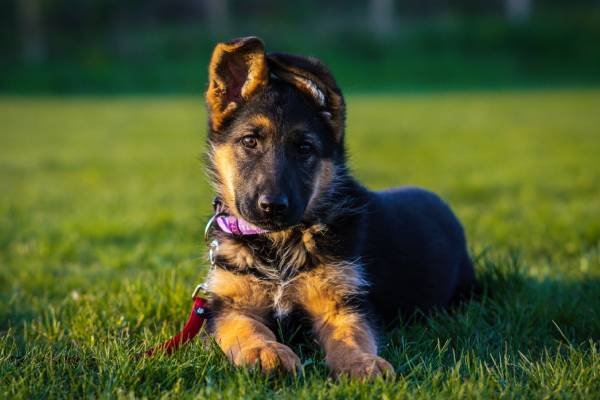
Growling Shouldn't Be Punished
Your puppy should never be punished for growling. When they growl, they are communicating that something is bothering them. In order to prevent your puppy from becoming uncomfortable, you need to ensure that they receive adequate socialisation, training, and management. Punishing a puppy that growls is only going to encourage them to skip giving you this warning sign, and moving straight onto biting without warning.
If your puppy is uncomfortable and doesn't tell you, you could end up in big trouble. You might find that your puppy is uncomfortable around children. Previously, they might have growled at the children if they made them uncomfortable. However, since you punished your puppy last time it growled at children, now they won't growl, instead they'll show their discomfort by biting. Moreover, puppies may make the link between punishment and children, making them even more afraid of children as they believe they are going to be punished again. You can see how this is a recipe for disaster!
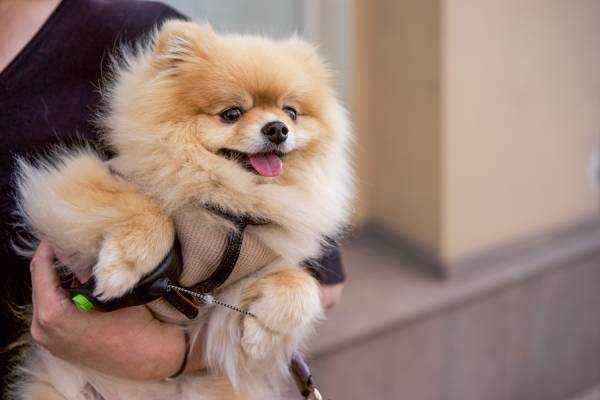
Practice Interacting with Strangers
Introduce your puppy to as many people as possible from an early age to prevent them from growling at strangers. As much as possible, expose your puppy to people of many different ethnicities, ages, and sizes, including people who use wheelchairs or crutches, or people wearing glasses or hats. By doing this, you can show your puppy that everyone is a friend, regardless of how they look.
Simply introducing your puppy to strangers could result in a nervous dog becoming worse. This introduction should also be accompanied by a high value reward such as a treat or some time with their favourite toy. Your puppy should set the pace for introductions. Let the puppy approach strangers in their own time, do not drag them up. Your puppy will be dragging you to meet new people in no time, as it will learn that making new friends is a rewarding experience, not something to be feared.
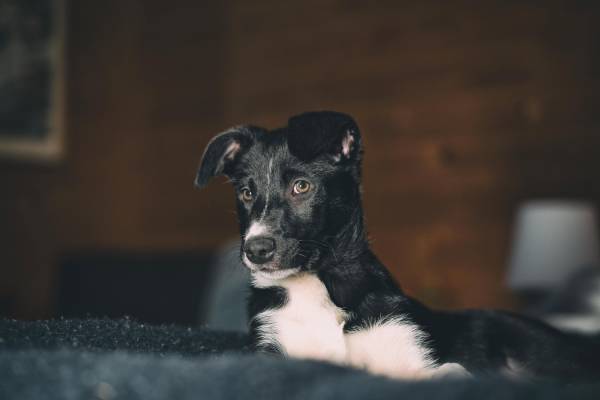
What To Do If Your Puppy Is Already Growling
You must adapt your approach slightly if your puppy has already started growling at strangers. Take it slow and start when your pup is calm and relaxed. Your puppy should be kept at a distance from strangers where they are not growling yet, but close enough that it can see them. Praise and reward your puppy while they are calmly sitting and not growling. Gradually move your dog closer and closer to the stranger, rewarding and praising them only if they do not growl at them. If they do growl, take a step or two back, and try again. Get closer to the stranger every time you reward your puppy. Perhaps you can get the stranger to help by offering your puppy a tasty treat to show your puppy that the stranger is not a threat, and if they behave, they will be rewarded with a tasty treat!
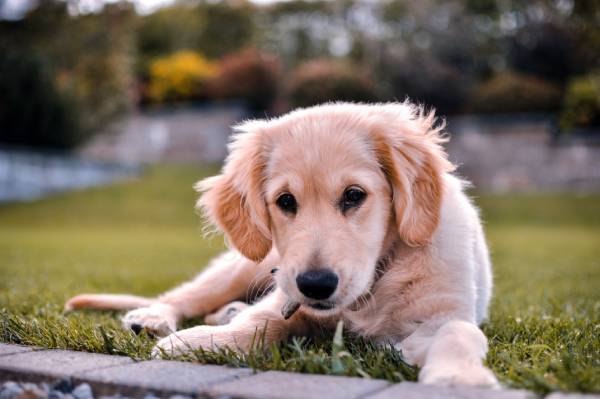
Puppy training can be a lengthy process. Rather than treating surface-level issues, it is better to tackle the underlying cause. When problems are addressed early on and positive reinforcement is practiced, the adult dog will be well-behaved.
We recommend asking your veterinarian or a certified animal trainer for advice or tips on your puppy's training program if growling continues to be an issue. If you give your puppy a little extra support, he will soon be able to interact with strangers without growling. Find out more Puppy / Dog Training and Behaviour Products at Vet Products Direct.
Read more about Puppy / Dog Training and Behaviour :
